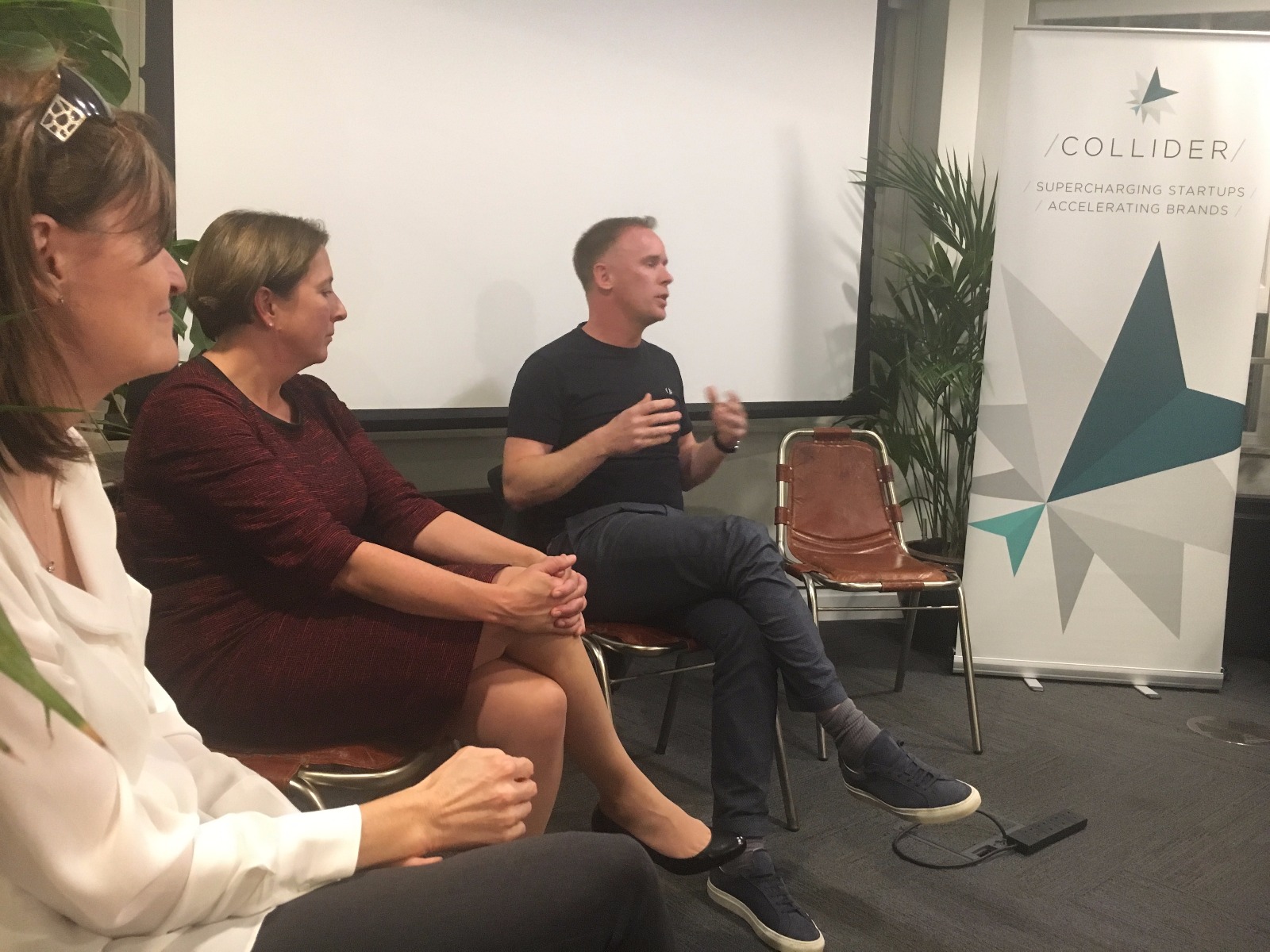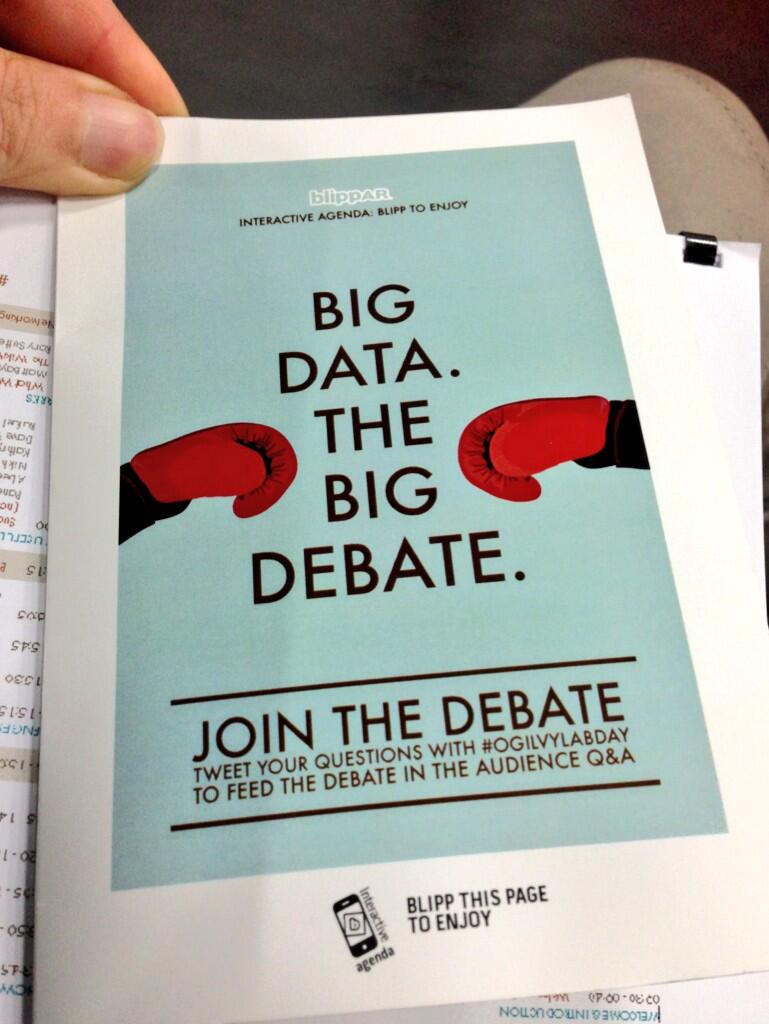Le Camping's Demo Day
Yesterday our blogger in residence Mindy went along to Google Campus to watch a Demo Day held by fellow accelerator Le Camping. They are normally based in Paris, but are currently showcasing their startups on a tour, visiting Berlin, Luxembourg, and San Francisco. Here is what Mindy learnt from our startup cousins across the seas. "Le Camping certainly laid down the gauntlet at Google Campus by allowing the eight startups only eight minutes in front of the audience. Despite the time constraints, most of them managed to cover the product, business model, competition, team, development strategy, financing needs, long- and mid-term vision. What was most impressive was that each of the startups had found their own way of pitching, to make such a regular and often-performed exercise into their very own piece.
Znappit held the largest surprise by producing a video-montage of the current event, filming the final seconds as they walked on stage. Also, taped under every single chair was a vintage postcard with their address, hand-written, to allow those current to create a postcard of the experience.
Based on the feedback and questions which arose after each pitch, I noted down the most common queries, as all startups could learn how to present better.
1. Show your weakness
If you have a weaker area, be it your business model or pricing structure, don't just that slide out. Investors see these presentations every day, and the fact that you have left this information out will only highlight the fact that you don't want to talk about it. It's far better to be honest, as you are a startup and so people are not expecting the finished, polished product.
2. How does it make money?
Some of the most exciting startups I saw yesterday received a positive response, but the question that soon that was 'how it will earn revenue?'. If you are pitching to investors, one of the main things they want to know is how they are going to get a return. If you can't prove your product has a stable way to generate income, alarm bells are going to be ringing.
3. Longevity
With any investment, comes the question of how much life this product or idea has. We all know how fast technology is moving, and nobody wants to commit time and money to something that is going to be outdated in six months, as it often takes that long to even begin getting it market ready. Also, if you're aiming for corporate companies, are you going to be able to scale your product up to such a level?"
Video: How to Raise Fundraising for Startups
You can now watch the live footage of Rose Lewis's presentation from Digital Shoreditch, which contains all sorts of handy information about how startups can successfully raise finance. You can watch Rose here, as well as watch many other talks from the eventful week.
Guest Post from Seeker on Big Data
One of our startups, Seeker, were invited to an Ogilvy Lab Day yesterday, where the entire event was focused on Big Data. Tielman de Villiers, the co-founder and CTO at Seeker Industries, went along to find out just how big the debate is around big data. He was particularly keen to hear opinions surrounding just who owns all of this data, is it possible data can become too “clever” for its own good, and is there really that much value in “big” data? Here is his report, for those of us who missed the event.
Photo by @nicoleyershon
"There are currently many unanswered questions concerning the creation of big data, it's ownership, and it's accuracy. Let's go through some of the issues discussed at the Lab Day.
Matt Bayfield, head of data practice at OgilvyOne Worldwide, asked what is the role of advertising, if brands start knowing everything there is to know about you? It’s not only the ownership of the underlying data, but also of the data on top the data, as Dr Trevor Davis, consumer products expert at IBM, mentioned. For example, if you start making predictions using Facebook’s Opengraph or Google Trends, where does the legal responsibility start and end?
And what if all that personal data is actually a bit of a lie? So, even if Google, Facebook and Amazon captures, processes, segments, and targets everything users are willing to share, how “truthful” and representative is it really? Liri Andersson, co-founder of This Fluid World, spoke of examples where the “real” data is still outside of the “system”. For example, product recommendations often occur in forum-based discussions, which influence our decisions about purchases. In other words, how useful is the big data really with regards to predicting future behaviour?
Then there’s the slightly “scary” part of big data, when data analysis algorithms become so complex and relied upon by corporations that plain old human common sense goes out the back door. Stan Stalnaker, founder director of Hub Culture and the brains behind the Ven currency, warned of becoming too reliant on machine driven algorithms. Just look at what is happening in the world of corporate finance with programs driving and controlling sales in financial markets. What happens when this happens in the world of digital marketing, with the most personal of our personal data?
Big data also seems to be big grey voids. Spotting the little clusters of data with significance inside the masses of greyness (ie, “sparse” data), and doing it in “slow time” (ie, looking back at long historical trends, as opposed to right here, right now) is something which Dr Davis used to “predict” fashion trends. For those left wandering, it’s steampunk."
New Moment.Us Interview
huddled is a site dedicated to business news in the North West. Launched in January 2013, huddled is created by a team of North-West based journalists dedicated to providing up-to-date news relating to local companies and issues that affect businesses in the area. Most recently, huddled interviewed the brains behind Collider12 startup Moment.Us, which you can watch below. http://youtu.be/GSOQVrZhyQI









